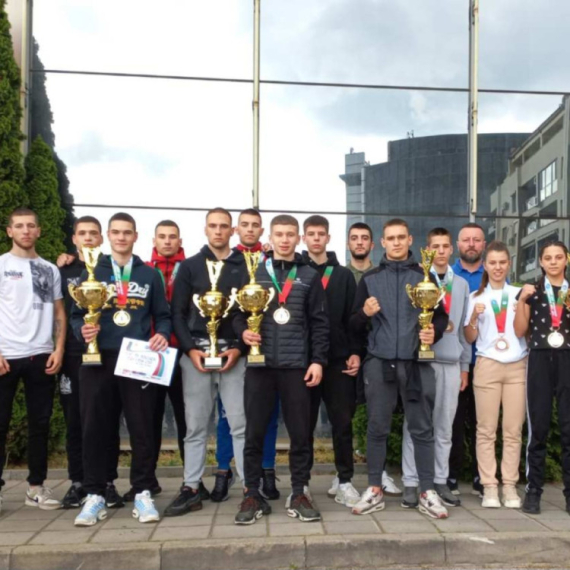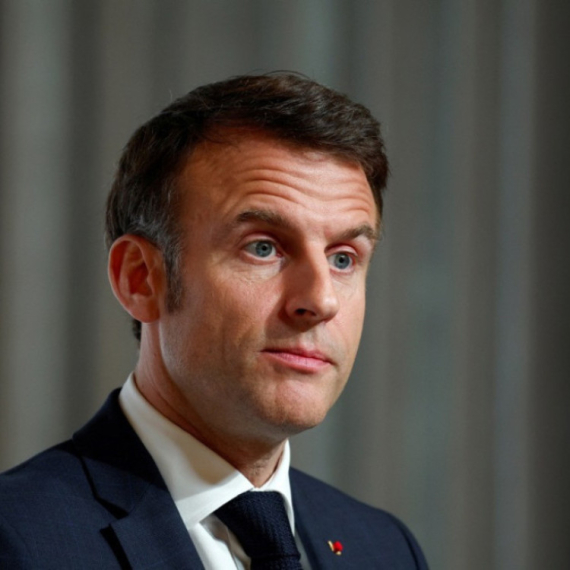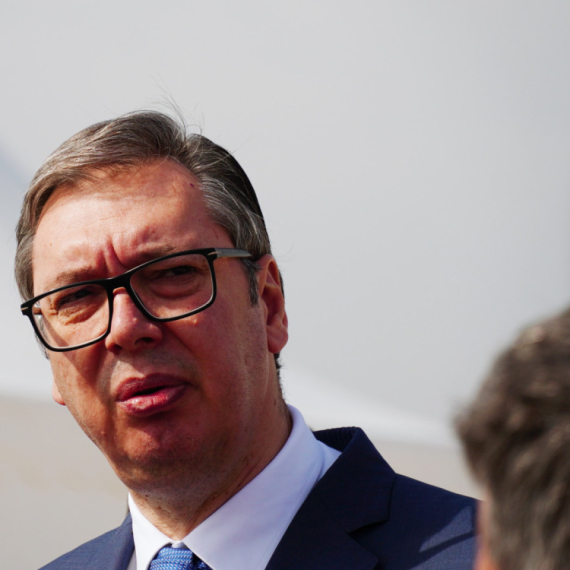Troika to hold separate meetings in Vienna
The Contact Group Troika will arrange separate meetings with delegations from Belgrade and Priština in Vienna.
Thursday, 16.08.2007.
12:44

Troika to hold separate meetings in Vienna
“It is not yet clear at which level Belgrade and Priština will be represented in the Austrian capital,” Kharchenko said, stressing that the Contact Group aims to engage both sides in direct talks.“The Troika will not make any suggestions for Kosovo’s status settlement, nor impose solutions, since its mandate is to stimulate a compromise. We expect to hear fresh ideas from both sides in Vienna with the goal of drawing nearer to a compromise.”
Commenting on Wolfgang Ischinger’s “philosophical thesis” that any solution for Kosovo was possible, including partition, Kharchenko said he maintained contact with the EU envoy to the Troika.
“I am positive that Ischinger’s stance does not deviate from the common position the Troika adopted, pledging not to propose options nor imply the final outcome,” Kharchenko concluded.
Ischinger: Troika will accept any agreement
In an interview with the German daily Sueddeutsche Zeitung, Wolfgang Ischinger said that the basis of the negotiating Troika’s mediation work is UN Resolution 1244 and the Contact Group’s decision of 2005 that ruled out the partition of Kosovo.However, he added that what was new in the process was the Troika's support for any solution which the two sides were able to reach.
“The Troika does not intend to propose its own solutions to the problem. What we want is to do all in our power to encourage both sides to be creative and to go beyond their current proposals as far as settling the status issue is concerned,” Ischinger argued.
“We will not make any progress if both sides dig their heels in and keep insisting on their irreconcilable stances. An intensive debate on alternative options is exactly what we need.”
The German diplomat confirmed the new round of talks would continue at the end of August, with the mediating Troika talking separately to representatives from Belgrade and Priština, adding that a similar meeting would follow in September.
“The talks in September will, in all likelihood, involve separate discussions, rather than direct negotiations. They will also mark the end of the initial phase. Then we hope to continue negotiations by arranging direct talks, possibly in the form of conferences, where the Troika would act as mediator,” he explained.
Asked to comment on whether December 10, when the Troika is due to submit its progress report to UN Secretary-General Ban Ki-Moon, would mark the end of the talks, Ischinger replied that various opinions existed on the matter within the Troika.
“The Russians do not see it as a final date, while the EU and U.S. regard the date as a central point, since the report should be in New York by that time.”
"Partition as viable option"
Historian Čedomir Antić says Kosovo's partition cropped up as an option after it became evident Belgrade and Priština cannot reach a compromise.In his opinion, it is obvious that, should it come to a unilateral proclamation of independence, the factual division of the province was bound to happen, since “the Serbs from the northern Kosovo will never recognize a new state.”
Antić added that politicians in Belgrade refuse to admit and explicitly state that such a partition would not be in Serbia’s interest.
“We could manage to attain more favorable border structure during the negotiations than those that would be drawn after the recognition of Kosovo’s independence,” Antić stressed, dismissing claims “that it has never happened before that a state disowned a part of its territory.”
“Great Britain and France did it several decades ago in a decision that resulted from their estimate that otherwise state interests could not be sustained in entirety.”
“It is unlikely to expect such an approach from Serbian politicians who failed to yield a representative able to come bravely forward,” he said.
According to Antić, it is hypocritical to say that Kosovo should not be divided since two thirds of Kosovo Serbs lived in the enclaves to the south of the Ibar River.
“Two thirds of Kosovo Serbs are actually living as refugees in Serbia proper, and they should be the first to say that circumstances in Kosovo need to change. In any case, Kosovo Serbs should be our greatest concern at the moment, rather than the political elite that benefits if the Kosovo issue remains unresolved,” he concluded.
“Serbia should pay far more attention to the complexity of the issue in question. There are politicians that behave in the manner characteristic of late Serbian President Slobodan Milošević.”
“Certain politicians insist on formal recognition of Serbia’s sovereignty for it enables them to claim that the province is still a part of Serbia, even in case of unilateral proclamation of independence, and use the situation for political gain in the next elections,” Antić argued
“They do not even bother to think whether Serbia would persist as a state after they leave the political scene. Owing to that same policy, there might no longer be any Serbs left in Kosovo.”





















































Komentari 23
Pogledaj komentare